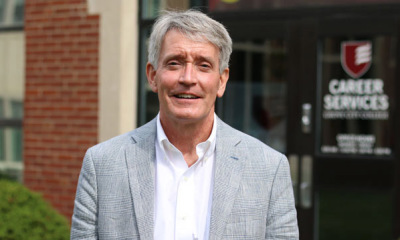The Tim Tebow controversy — it’s about culture, stupid

Everyone seems to have an opinion on Urban Meyer’s decision to sign Tim Tebow to the roster of the NFL Jacksonville Jaguars. The all-knowing Charles Barkley pontificated that Tebow failed as a quarterback in the NFL and as a Minor League Baseball player—so Sir Charles encourages Tebow to not embarrass himself and just hang it up. A cadre of ESPN commentators have taken their shots at Tebow and Meyer. Stephen A. Smith on “The First Take” show has called the signing racist and white privilege. Shannon Sharp believes that the roster move is because of the Tebow/Meyer friendship: they both live in Jacksonville, and the Jags want to sell more tickets. Ryan Clark has questioned Tebow’s motives and has asked “who the hell does he think he is?” Mike Golic sarcastically asks if Tebow can block or even catch a football? Every possible talking head has offered its absurdly woke or surprisingly imperceptive criticism of the Jags’ move to bring Tebow on board.
Not one of these talking heads got it right.
The Jacksonville Jaguars is a failing NFL franchise. The team leadership has selected the third most successful coach in NCAA history to set a new vision. Over 17 years, Meyer is 187-32, a .854 winning percentage. The Jags and Meyer are decisively leading the organization forward.
It’s about culture, stupid.
Meyer has been successful in the past due to his ability to create transformative team cultures. Culture is the starting point of a team’s reconstruction. The importance of team culture cannot be overstated. How team members think, feel, behave, and perform are all influenced by the environment in which they practice and compete. Dr. Jim Taylor defines a sports culture in his book Prime Sport: Psychology of Champion Athletes as a culture that “expresses a team’s character, attitudes and goals about competition, community, and relationships.” Culture dictates everything from how a team practices and functions to its overall performance. Taylor goes on to say that “culture creates the atmosphere that permeates every aspect of a team’s experience.” Vision drives a culture, and it acts as the rudder directing all team decisions. It also provides a standard by which all goals and objectives are defined and constantly evaluated. A positive team culture eliminates negativity and conflict, and most importantly, it brings out the best in team members. It also wins ball games.
While at the University of Florida, Meyer and Tebow consistently met to talk about how to develop a thriving team culture and how to cultivate cohesive team dynamics. Tim Tebow is an experienced team culture builder. Throughout his life he has evidenced this calling, and Meyer is perceptively capitalizing on it.
It has been proven that shared vision and leadership that bubbles up from within the player ranks delivers organizational success. Tebow is an inspirational influencer. He has been utilized in the past to transform lives, organizations, and teams. He views himself and those around him as individuals who are worthy of dignity and respect. He will play and lead with love, grace, transparency, authenticity, and grit. He passionately brings out the best in those around him, and he has proven the ability to create an environment where change and growth flourish. Tebow has taken ownership of the Meyer vision, and he will be an infectious communicator of that approach to football. He will be an engaging relationship builder in the locker room and on the field. Tebow will catch a few passes, but his most significant impact on the Jags organization will be by being a servant-leader of a cultural re-set.
As a cultural architect, Urban Meyer knows exactly what he needs to succeed. Tim Tebow will make the Jags 53-man regular season roster, and the Jags will emerge as a rising NFL franchise. This will not transpire because of Tebow’s ability to run tight routes and catch bullet passes, but because of his unmatched ability to contribute to a transformed team culture. Mark my words, it’s all about culture.
Jim Thrasher is the Senior Advisor to the Vice President for Student Recruitment and the coordinator of the Institute for Faith & Freedom's working group on calling.




























